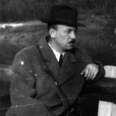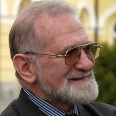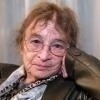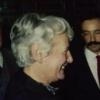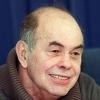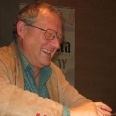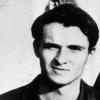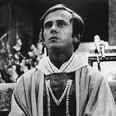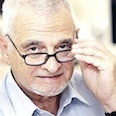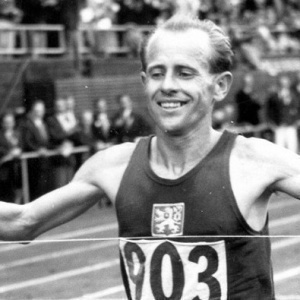Tadeusz Masowiecki
Masowiecki was born in Plock, where his father was a doctor. He studied law at Warsaw University, but did not complete his studies. In 1949 he joined “Pax”, a group of young Catholics linked to Boleslaw Piasecki, who were looking for a modus vivendi with the communist regime. Tadeusz and others abandoned the group in 1955 because they disagreed with Piasecki’s compromise approach.
He was one of the co-founders of the Catholic Intellectuals Club (KIK). The focus of his public activity did not involve opposing the regime, but rather trying to foster spaces for cultural freedom and social solidarity in society. In 1961 he entered Parliament in the small group of Znak deputies.
In 1978, during a meeting at the Warsaw KIK, he stated: “In the political situation in Poland there is an intermediate space between dissent and legality, but the authorities are trying to confine any group wishing to occupy that space into the category of dissidents; it is vital that we combat this attempt by the regime in every way we can in order to defend this important intermediate space.” A highly significant movement operating in that space was one that gravitated around the KIKs and the Catholic monthly Znak (The Sign), within which Tadeusz played a key role. From 1958, for 23 years he headed the Warsaw magazine Wiez (Link) linked to Znak, which included a group of young Catholic writers. As chief editor he opened a dialogue with Marxists not connected with the regime and he was one of the initiators of dialogue between the Poles and the Germans. After the events of March 1968, Wiez published the texts of those who were no longer able to write in the official press. Immediately after the tragic events of December 1970, he went to Danzig and demanded the constitution of a special commission to investigate what had happened. From the pages of Wiez he asked for a reform of the system that would allow for free and open debate, guarantee the independence of science and culture and ensure “effective representation” for the workers. He stated that Polish society needed to perceive that its members were jointly responsible for their country’s destiny and to take a real part in public life. The authorities’ response was to delete Masowiecki’s name from the electoral lists in 1972. In the first half of that year he was successful because Znak’s activities focused increasingly on a long-term educational and cultural work.
In November 1976, in an interview with the Frankfurter Allgemeine Zeitung, he expressed his support for the workers who had become victims of repression after the events at Ursus and Radom: “The trade unions must have an independent role, censorship must be relaxed, social groups and organizations must be guaranteed real autonomy, the atheist State propaganda must be abolished and all citizens must have the same employment opportunities.” Risking Wiez being closed down, from 24 to 30 May 1977 Masowiecki took part in a hunger strike in solidarity with imprisoned workers and KOR representatives. In November 1977 in the Wiez headquarters he organized a conference on human rights, attended by leading opposition figures and in January 1978 he helped found the “Flying universities”.
He was one of 64 intellectuals that signed a petition on 20 August 1980 in support of the Danzig strikers. On 22 August, along with Bronislaw Geremek he took the Petition to the Lenin shipyards and, at Lech Wałȩsa’s request, both became advisors to the Strike Committee. Masowiecki was later appointed chairman of Solidarność’s Commission of Experts and played a key role during negotiations with the government. After the agreements had been signed, he became Wałȩsa’s main advisor, distinguishing himself for a moderate approach that would ensure that Solidarność did not become “a firework, like so many others in our history, but a well-rooted and consolidated body, that will change the face of our country”. He was chief editor of the “Solidarność Weekly” and with the introduction of the State of War on 13 December 1981, he was detained in several internment camps, from which he was released on 23 December 1982. He immediately went back to writing for the underground press, publishing numerous articles and essential texts for understanding the Solidarność “phenomenon”; at the same time he continued to back the clandestine framework of the trade union and was repeatedly stopped and detained by the police...
In 1987, thanks to the intervention of the Belgian Foreign Minister, he was granted a passport: he travelled to Belgium, France, Germany, Italy and Austria, where he held a series of conferences on Solidarność and numerous meetings with trade unions, the press and politicians. On his return to Poland, he continued his efforts as a mediator, especially whenever social conflict seemed to be about to explode.
In 1989 he was part of a small group charged with preparing for the Round Table talks, in which he took part as co-chairman of the Commission for trade union pluralism. He did not candidate himself for the elections in June 1989, preferring to become chief editor of the re-born “Solidarność Weekly”; at Lech Wałȩsa’s request, however, on 24 August 1989 he agreed to form the new government. He successfully introduced a series of key reforms – including the reform of the Constitution – which completely changed the political system and paved the way for introducing new economic regulations as well. Prime Minister until December 1990, from 1992 to 1995 he acted as the special commissar for the United Nations Commission of Human Rights in the former Yugoslavia, but he resigned in protest against the indifference of the international community and of western heads of state towards the Balkan genocide. Up until 2001 Masowiecki was a member of the Polish parliament.
He received numerous international awards, including the Order of the White Eagle in Poland (1995), the Order of Gold in Bosnia (1996), the Legion of Honour (1997) and the Srebrenica prize 1995 (2005).







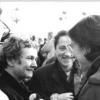
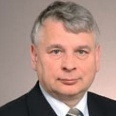





.jpg)

